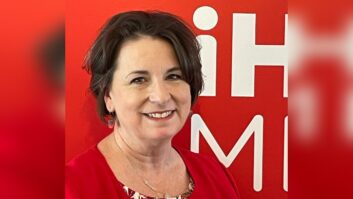The author chairs the Strategy and Budget Committee of the Broadcasting Board of Governors.

Michael Meehan
Credit: BBG Around the globe today, only one out of six people lives in a country with free media. According to Freedom House, this is the worst media freedom rate in more than a decade.
That’s precisely why the work of U.S. international broadcasting journalists is more critical than ever.
At the Broadcasting Board of Governors, our clear and simple mission is to inform, engage and connect people around the world in support of freedom and democracy. As the demand is greater, our financial resources are fewer. All across the federal government, agencies such as the BBG are asked to do more with less. As technology platforms advance and become more decentralized, our challenges grow exponentially.
But, when planning for the future, the BBG is unlike other agencies in that it also needs to consider seismic changes in broadcasting, journalism and technology, along with the larger strategic global context for our broadcasters: Voice of America, Radio Free Europe/Radio Liberty, Radio Free Asia, the Middle East Broadcasting Networks and Radio and TV Martí.
BASED IN REALITIES
From a media standpoint, we don’t work in a vacuum. Publicly financed broadcasters from other Western countries, such as the BBC and Radio Netherlands, have faced deep cutbacks in funding, ending big chunks of shortwave while building out mobile and Internet platforms.
As anyone familiar with the U.S. news business will know, it’s a tough economic situation for broadcast journalists everywhere.
The president’s budget request for fiscal year 2014 (which you can see at radioworld.com/links), submitted to Congress in April, takes these realities into account. Since international broadcasting remains an integral part of U.S. national security — part of “soft power” — we work with other parts of our government in setting the strategic priorities, and are solely responsible for maintaining the journalistic independence of our broadcasters.
Practicing independent news and information is the catalyst for open democracy. We must continue to reach target countries around the world where media are not free.

A young Pakistani girl is interviewed by a Mashaal Radio reporter about her destroyed school in the Khyber tribal district of Pakistan.
Credit: RFE/RL For example, in response to the rapidly rising extremism in North Africa, we increased distribution and added two new broadcast languages in Mali at the Voice of America. We have also had great success in expanding distribution across Africa through new affiliate agreements and FM transmitters on U.S. embassy compounds that can reach listeners in populous capital cities. Working with the State Department, we have plans in more than a dozen African cities.
But tight budgets force us to prioritize the use of our resources. We have had to take a very hard look at spending — seeking efficiencies wherever possible and limiting the impact on our mission-critical work.
We must face trade-offs that are informed by our strategy, which includes changing the way we do things in order to respond to world events and to our audiences’ preferences.
Most importantly, we are seeing that our strategies are driving success; for example, using a “Washington bureau” concept to cultivate new audiences in Latin America (more than 23 million) that has driven our global audiences up to a record 203 million people weekly.
Other varied delivery platforms are helping us reach more people in important markets, including digital tools like SoundCloud, the recently debuted Global News Dashboard, and expanded mobile-friendly sites.
For FY 2014, the BBG requested $731 million from Congress, including new investments to counter violent extremism, engage new audiences in Burma and make critical infrastructure improvements. This is $18 million more than the current budget, which includes sequestration cuts.
CEO
The BBG is the only federal agency managed by a part-time committee. The president’s budget request also includes a legislative proposal to establish a chief executive officer, a key strategic objective that the BBG board adopted in 2012.

BBG is streamlining syndication strategies to deliver content via Google Currents, YouTube, SoundCloud and iTunes.
Credit: BBG If enacted, the proposal will improve the management and efficiency of BBG operations, helping to mitigate the challenges of a part-time board. The CEO will provide day-to-day executive leadership for U.S. international broadcasting, and will have management authority over the federal and non-federal elements.
Proposed shifts include scaling back selected language services to reduce overlap, increasing cooperation and ensuring that broadcasters will provide complementary content, streamlining and restructuring central news operations, realizing savings in information technology, and making significant administrative and support reductions.
The FY 2014 budget request also includes program, transmission and staffing reductions across all the BBG broadcasters and the International Broadcasting Bureau, in part through efforts to continue to restructure operations and end duplication.
The VOA Greek and RFE/RL Balkan services would be closed under this proposed budget, and AeroMartí broadcasts of TV Martí would be eliminated.
Some of these changes, if enacted by Congress, will be very difficult on the professional men and women involved. The BBG will do everything possible to minimize the impact on our employees through agency buyouts, early-out authority and reducing positions via attrition.
To be competitive in today’s complex media markets, we must innovate as never before. To have the resources and management structures to enable such innovation, the agency must continue to integrate its operations. Our people leading in innovation and integration are at the heart of the BBG’s strategic plan and the budget process, year after year.
Comment on this or any story. Email [email protected] with “Letter to the Editor” in the subject field












